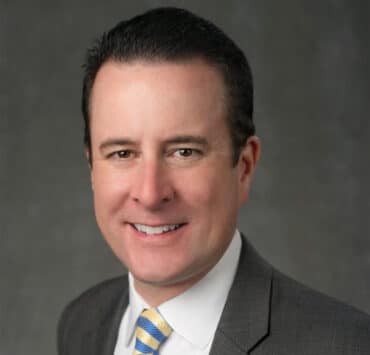|
Getting your Trinity Audio player ready... |
Auriel Rawlings is used to working globally. In her previous role as the regional head of human resources and diversity, equity, and inclusion (DEI) advisor at FedEx, her purview included 103 countries and territories and 40,000 team members for the Asia Pacific, Middle East, and Africa regions.
Rawlings created a transformational impact as the regional human resources manager for Northern Africa and the Middle East because of her dedication and passion for helping make employee voices heard—no matter the location or role.
There’s little wonder as to why Rawlings was promoted yet again at FedEx, her third role since 2020. The advisor earned the 2021 “Women Worth Watching” award, completed Yale School of Management’s Fostering Diversity and Inclusion online program, and earned the DEI in the Workplace certificate from the University of South Florida Muma College of Business.

Since joining FedEx in 2020, Rawlings developed regional company-wide diversity and inclusion initiatives, and now is taking on employee relations, recruitment, and policy and procedures. She has been a trailblazer in the DEI space given her global perspective of how the topic and efforts are perceived beyond the United States, as she is based in the Middle East.
Because she saw a need to further shape DEI strategies to pave the way for more inclusive workplaces, Rawlings founded her own consultancy focused on accelerating DEI transformation journeys becoming a trusted voice shaping these strategies for global organizations. Rawlings has shared strategy on several global platforms to include the World Expo 2020, the US Department of State, United Nations Women’s Organization, and US Trade Commission.
Rawlings spoke with Profile about the importance of culture initiatives, including DEI, and how that focus is continuing to help organizations differentiate themselves as a preferred employer during the Great Resignation.
As the leader explains, the terrain has shifted, and employers need to be ready to approach talent recruiting and retention as a “two-way street.”
What has the Great Resignation looked like from your perspective? Has it impacted the corporate landscape in other sectors as much as healthcare and tech companies?
Self-awareness is at an all-time high. People want more out of their lives, in addition to their day-to-day jobs. The time at home during COVID-19 allowed them to focus on family, hobbies, and new business ventures. Positive mental health and well-being satisfy a deep need for more meaningful connections, and the trend to prioritize personal lives over a job translates to an all-time low tolerance for toxic workplaces. Working from home gave individuals the freedom to ditch the morning commute, to wear comfortable clothes, and people are embracing this and no longer restricting their identities for a workplace.
Companies must recognize that their success depends on the talent, dedication, and well-being of their people. As they grow, they must strive to recruit, retain, develop, and provide advancement opportunities for all team members. Some companies have experienced headwinds due to labor shortages, however it is important that these challenges are viewed as opportunities. I have seen competitive pay, benefits, flexible schedules, hybrid work models, and other perks allowed organizations to gain considerable traction on the labor front.
Could you speak to the power of culture as it relates to the mass exodus of employees over the last few years?
Companies create experiences which influence the culture and business performance. Studies show that people with positive employee experiences are eight times more likely to stay at a company than those with negative experiences. Culture is what makes people stay or leave.
Culture is the way a company operates. It is the lifeline of its bottom line and has a domino effect from hiring to business performance. If employees aren’t passionate about the company’s vision, they won’t be enthusiastic about executing the plan which can lead to a toxic workplace and negative customer experience.
Culture is also the attitude and behavior of the organization’s leadership and employees every day; how they respond in critical situations and to various challenges, and how they treat each other, their customers, and business partners.
Compared to the rest of the world, the Middle East hasn’t seen the same trend in mass resignations, thanks to the significant number of candidates in the market. For example, a hiring manager may receive hundreds and in some cases thousands of applications. The market is highly competitive, however there is a strong focus on employee retention as it can be costly and time consuming to replace a departing staff member.
How can leaders better prioritize recruiting and retention beyond just responding to the Great Resignation in the short term?
Leaders have an opportunity to attract and select candidates who not only offer the skills required for the role, but match and will work well within—and support—the organization’s culture.
A strong commitment to DEI is an important aspect of a company’s approach to recruitment and retention. Candidates with nontraditional backgrounds, with career breaks, or who address gaps within the current workforce will diversify your team, helping to bring a range of ideas and opportunities to your planning, discussions, and activities. Central to this success, however, is that any strategy on DEI must be more than talk—having a concrete plan in place and showing the actions and results in these areas to your team.
Finally, leaders must create opportunities for growth within the organization, identifying employees ready for promotion and creating a pipeline of future leaders and programs that give employees the opportunity to develop their skills and network across the organization. I created a program like this within FedEx and have used the experience to promote and create opportunities for others.
Is there any other kind of evolution you think needs to occur to adapt to this moment?
Today, everything is a two-way street. Just as companies ask candidates why we should hire them, we have to be open and show why they should work for us. Beyond the job role and salary or benefits package, having a clear and compelling reason for a candidate to be excited about joining the company can be supported by the organization’s culture values, beliefs, and ethics.
I believe that companies must embrace the future of work, which sparks passion and enthusiasm in employees to be productive and deliver results each day.

